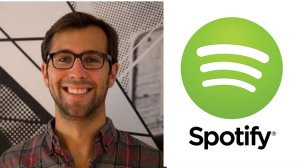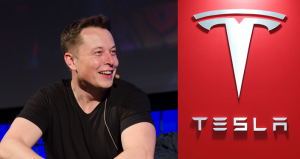In reading the news over the long holiday weekend on my laptop and phone, I ran across a fascinating series of quotes from important people in the media and technology space. Each says a lot about where the puck is moving – or has already moved. And they each inspired me to slow down and think about how the media and entertainment world is changing around us.
So here’s quote #1:
“It turned out when we got to know our users and their patterns a little bit better, they really enjoyed co-mingling music and other types of content throughout their day. When you think about it, it’s pretty natural. Terrestrial radio has been doing this for decades, interweaving news, entertainment, and music all in the same stream.”
 This is Spotify’s VP of Product, Charlie Hellman, talking about how the pure-play service is now creating partnerships with video producers as diverse as NBC, ABC, CBS, and Comedy Central to offer non-music options. Spotify’s new menu also includes podcasting, as well as programs about music, to heighten the experience.
This is Spotify’s VP of Product, Charlie Hellman, talking about how the pure-play service is now creating partnerships with video producers as diverse as NBC, ABC, CBS, and Comedy Central to offer non-music options. Spotify’s new menu also includes podcasting, as well as programs about music, to heighten the experience.
Acknowledging that their users don’t always want to listen to music, Spotify is attempting to link its product with moods and activities. Many of their playlists are built around activities and emotions, rather than genre.
Part of their announcement also connects their programming to activities that include jogging, working out, or just chilling on the couch. A new running app, for example syncs up running to the beat of the music to help exercisers get physical to their favorite tunes.
The video below is an interesting look at Hellman’s take on where this pure-play is headed:
>Email recipients: Click here to watch the Spotify video<
It’s a reminder that relying on music alone is a not a smart, long-haul strategy. This is a reality that we’ve known in broadcast radio for some time now. The fact that pure-plays are coming around to this same notion – and acting on it – is another reminder that spoken word content is key to building usage and loyalty.
And here’s quote #2:
“Ten years ago in 2005, there was no iPhone so the entire smartphone revolution has happened in just ten years. So now we have to wonder about the next ten years. What will that bring in hardware innovation? In virtual reality – in incredible immersive screens in your home and screens in your pocket? The Internet will get so much faster, fiber to every household that has electricity. All of this will happen over the next ten years.”
 It’s Reed Hastings, CEO of Netflix, talking about how our television viewing patterns will be changing over the next 20 years. But in doing so, Hastings acknowledges the difficulty of even attempting to predict what may be happening just five years out. And trying to make prognostications that extend longer than that is just plain silly.
It’s Reed Hastings, CEO of Netflix, talking about how our television viewing patterns will be changing over the next 20 years. But in doing so, Hastings acknowledges the difficulty of even attempting to predict what may be happening just five years out. And trying to make prognostications that extend longer than that is just plain silly.
We’ve heard that same sentiment from automakers during these past few years. This was once a methodical industry that planned for a consistent, dependable future. Today, the OEMs and Tier Ones acknowledge that their space is changing rapidly. A great example is autonomous driving. Just a couple years ago, most knowledgeable people in automotive were talking about self-driving vehicles coming to market well past 2020. That timeline continues to move closer to today – and it’s picking up steam.
This is a message to us in radio that the days of longer term goals have come to an end. Being nimble, keeping an open mind, and developing a willingness to pivot as technology provides us with new possibilities and challenges is essential to survival in this environment.
And here’s quote #3:
“You want to have a future where you’re expecting things to be better, not one where you’re expecting things to be worse.”
 Of course that’s Tesla founder and CEO Elon Musk who always has his sights set on lofty ambitions that include exploring space to using batteries to power our homes.
Of course that’s Tesla founder and CEO Elon Musk who always has his sights set on lofty ambitions that include exploring space to using batteries to power our homes.
We see this optimistic mindset on display every year at the Consumer Electronics Show. It’s an event that reminds us that innovation is born out of optimism. And the radio industry could use a lot of both. Too often, broadcasters find themselves “playing D” or catch-up, rather than truly setting out to pioneer new experiments and creative efforts.
While new formats can provide short-term success for radio, loftier initiatives that cut across traditional broadcasting boundaries are essential if the business is to remain healthy and vibrant. From breakthrough personalities to creative advertising to clever podcasts, it will be radio’s programming and content efforts that will make all the difference.
But it starts with a positive outlook – forward thinking and a sense that things can and will get better.
And you can quote me on that.
- Can Radio Afford To Miss The Short Videos Boat? - April 22, 2025
- Media And Technology In 2025: Believe It Or Not! - April 18, 2025
- In Radio, You Just Never Know - April 17, 2025




Leave a Reply